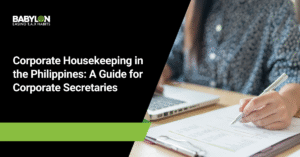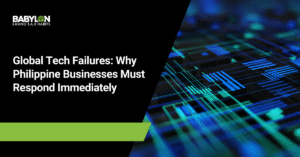RA 11976, the Ease of Paying Taxes Act, marks a transformative change in the Philippine tax system. It aims to create a more equitable and efficient tax environment, focusing on modernization, taxpayer rights, and ease of compliance, particularly for SMEs. Key features include:
- Tax System Modernization: Integrates global best practices to make the Philippine tax system more efficient and up-to-date.
- Broad Application: Affects all taxpayer categories, with a focus on simplifying processes for SMEs.
- Simplified Taxpayer Classification: Introduces clear categories based on gross sales to simplify tax obligations. ed on gross sales. The thresholds are set as follows: micro (up to PHP 3 million), small (PHP 3 million to PHP 20 million), medium (PHP 20 million to PHP 1 billion), and large (over PHP 1 billion). This classification simplifies understanding of tax obligations and aids in targeted tax administration.
- Flexible Filing & Payment: Offers electronic and manual options for filing and paying taxes, enhancing taxpayer convenience. Taxpayers now have more options for filing and paying taxes, including electronic and manual methods. EOPT Act allows taxpayers to file tax returns electronically or manually through authorized agents, Revenue District Offices, or authorized tax software providers, providing much-needed flexibility and convenience. This eliminates concerns about surcharges for incorrect venue filings.
- Updated VAT Rules: Streamlines VAT refund processes with risk-based categorization.
- Digitalization of BIR Services: Aims for end-to-end digital solutions in tax services for better taxpayer service.
- Quick Refund Resolutions: Sets a 180-day period for resolving refund claims.
- Enhanced Revenue Collection: Focuses on expanding the taxpayer base and improving revenue efficiency.
- Business-Friendly Environment: Creates conditions more conducive to business and investment.
- Simplified Timing for Withholding Taxes: Clarifies the timing for withholding taxes based on income payability. The Act streamlines withholding tax procedures by eliminating the “whichever comes first” rule. It establishes a straightforward timing based on when income becomes payable, which is defined as when the obligation is due, demandable, or legally enforceable. This change enhances coordination among withholding agents, income recipients, and the BIR.
These amendments to the NIRC sections (21, 22, 51, 56, 57, 58, 76, 77, 81, 90, 91, 103, 106, 108, 109, 110, 112, 113, 114, 115, 116, 117, 118, 119, 120, 128, 200, 204, 229, 235, 236, 237, 238, 241, 242, 243, 245, 248, and 269) and the repeal of section 34(K) are part of these comprehensive reforms. Moreso, the repeal of Section 34(K) alters the requirements for the deductibility of certain payments, ensuring that deductions are allowed only if corresponding taxes have been paid. This comprehensive revision of the NIRC ensures greater clarity and efficiency in tax administration and compliance, echoing the Act’s overarching goal of fostering a conducive business environment.
Stay tuned for our detailed analysis and advisory. For further guidance and support on navigating these changes, visit Babylon2k.org, your ally in adapting to the Ease of Paying Taxes Act. Schedule a Call Now!






